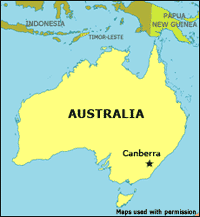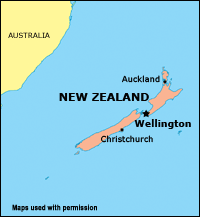
Living costs in Australia
Migration regulations in Australia require international students to
show evidence that they can contribute to the cost of living and
studying in Australia. This helps to ensure students are better able to
make the most of their studies and have a safe and enjoyable experience
in Australia.
While international students are able to supplement their income with
money earned through part-time work in Australia, the ‘living costs’
requirement helps to support the success of students in their studies by
ensuring that they don’t have to rely on such work to meet all their
expenses.
From 1 January 2010, the basic rate of living costs under the
Migration regulations increased. Under these regulations prospective
student visa applicants and their family members must have access to the
following funds to meet the living costs requirements:
- A$18,000 a year for the main student;
- A$6,300 a year for the student’s partner;
- A$3,600 a year for the student’s first child; and
- A$2,700 a year for every other child and where required.
Students must demonstrate that the funds they are relying upon to
meet the costs of studying in Australia will be genuinely available to
them during their stay in Australia.
The figures above are indicative only and that costs can vary
significantly depending on where you live in Australia. You should be
prepared in case your living costs are greater than the indicated
figures.
For more information visit
www.immi.gov.au
Budgeting
Once you’ve settled in it’s recommended you work out a budget
covering costs including clothing, food, accommodation, transport and
entertainment. Travel costs and child care, if applicable, should also
be taken into account. It’s important to be aware of how much money you
spend and where you are spending it. Sticking to a budget will ensure
you are on top of where you money goes.
Read more about budgeting at
www.understandingmoney.gov.au
Shopping
Australia’s major town centres and capital cities have world-class
shopping facilities. Hours are generally 9.00am to 5.30pm seven days a
week, with late night shopping until 9.00pm on Thursdays or Fridays.
Some supermarkets are open 24 hours a day seven days a week.
Mainstream grocery stores in Australia include Coles, Woolworths and
Aldi. Major department stores in Australia include Myer and David Jones.
Below is a list of average costs for everyday grocery products in Australia:
- loaf of bread – A$2.50 to A$3.00;
- two litres of milk – A$2.20 to A$2.90;
- newspaper – A$1.50 to A$3.00;
- box of breakfast cereal – A$3.00 to A$4.00;
- jar of instant coffee – A$3.00 to A$4.00;
- bottle of soft drink – A$1.50 to A$3.00;
- bottle of shampoo – A$2.50 to A$4.50;
- bar of soap – A$1.50 to A$2.50;
- one apple – 50 cents to 80 cents;
- one banana – 60 cents to 90 cents;
- beef (500 grams) – A$7.00 to A$8.00; and
- chicken (600 grams) – A$7.00 to A$8.00
Clothing
While there are no set rules on clothing in Australia, many
workplaces, restaurants, clubs and bars have a dress code. Australian
people generally dress in modern clothing influenced by personal taste,
status, place of work, lifestyle and location.
The cost of clothing in Australia can vary. There are a number of
quality variety stores such as K-Mart and Big W where you can find low
cost clothing and shoes of all varieties. Department and speciality
stores such as Myer and David Jones carry more expensive higher end
clothing labels.
 Australia
Australia 










